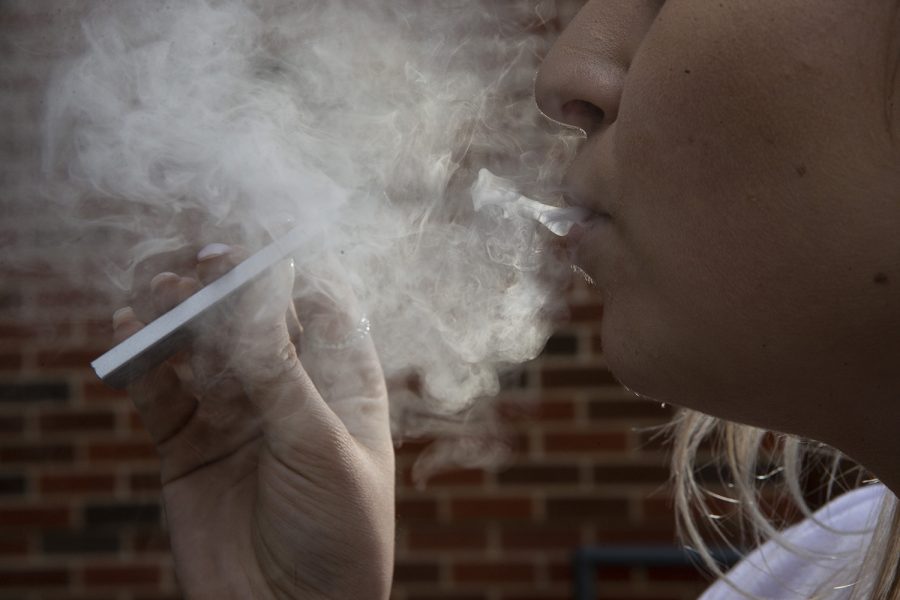You see people doing it everywhere — on campus, walking downtown, or even taking the bus: students vaping.
Some days, it seems like almost everyone in Iowa City vapes. Despite e-cigarettes originally being an alternative for adults attempting to quit smoking cigarettes, vaping has transformed into a dangerous and readily available way for students to get their nicotine fix.
The surge in e-cigarette and vaping sales skyrocketed after the product was introduced to the U.S. market in 2007.
Many e-cigarette companies, like Juul, openly claim their products are an alternative to traditional tobacco. The company also stresses that Juul pods are not intended for underage individuals or non-smokers looking to quit. However, this hasn’t stopped many students on the University of Iowa’s campus from using Juuls and similar products.
According to the Iowa Institute of Public Health Research and Policy, “The National College Health Assessment reported 26.8 percent of UI undergrads said they have used e-cigs in the last 30 days. In a senior survey at a large Iowa City high school in 2019, 50 percent responded yes to the question ‘Have you ever vaped?’”
The biggest issue, aside from it being an illegal activity for those under 21, is the complex health risks associated with vaping.
As explained in a Surgeon General report for the U.S. Department of Health and Human Services, the use of e-cigarettes on youth can impact brain development and alter cognition, attention, and mood.
This spike in e-cigarette and vaping use has not only become a health issue but a financial one as well. Many students spend exorbitant amounts of money each month to feed their addiction.
In 2016, researchers from the University of Louisville found that those who purchase e-cigarette and vaping products at vape or smoke shops spend between $50 and $75 per month.
This amount of money is significant regardless of income. For college students, many of whom are on fixed or limited incomes, it can be especially financially burdensome. This disturbing statistic, combined with the presence of four dedicated smoke and vape shops in downtown Iowa City, makes it very difficult for local and university officials to curb the rampant use of illegal and unhealthy nicotine products.
Iowa City officials have recently created a new moratorium that temporarily pauses the distribution of new tobacco licenses to local businesses.
Additionally, many city councilors have also looked to adopt new legislation that would rezone Iowa City. This zoning shift would theoretically prohibit the sale of tobacco products within certain distances of parks and schools.
It would also make it harder for new businesses to receive tobacco distribution permits in the downtown area. This policy would be administered under the “home rule,” allowing Iowa City to make independent decisions without state government intervention.
This decision, while a small stride in the long journey of curbing underage nicotine addiction, is a step in the right direction. State officials should consider making similar policy changes if they want to see a significant shift in the vaping and e-cigarette epidemic.



